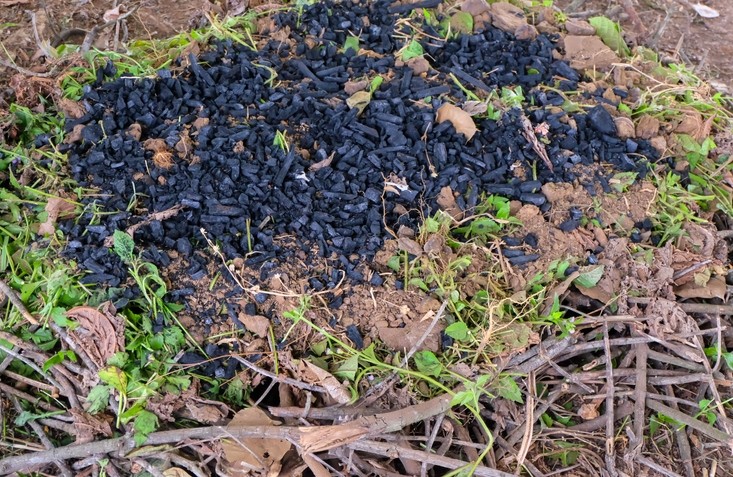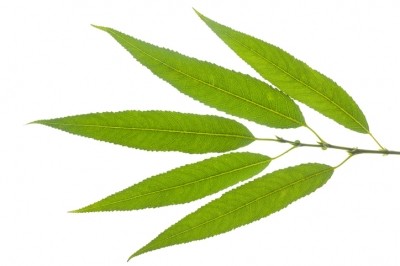Ireland: Call to boost R&D work on biochar for its potential to be realized for use in feed and other sectors

Biochar could benefit the forestry, agricultural and environmental sectors as a soil remediator, a slow-release fertilizer, a filtration medium, an animal feed additive, a potential peat replacement and as a carbon sink to name but a few, believes the organization.
Stephen McCormack, project executive with the Irish Bioenergy Association (IrBEA) said: “While levels of research into biochar and its various applications are increasing, much more is needed for its widescale production and use to be realized. We call on national authorities, research and funding bodies to take this opportunity seriously by providing greatly enhanced funding and resources to further explore and understand biochar’s uses and applications in an Irish context.”
IrBEA counts among its membership, biomass suppliers, bulk biochar producers, pyrolysis technology providers and developers, animal feed additive producers, soil and plant feed additive producers, activated carbon specialists and biochar analytics.
One such feed additive producer, Origin Biochar, supplies biochar based products targeted at the equine, ruminant and monogastric sectors that are designed to aid removal of toxins in order to have a positive impact on the digestive system, while boosting diet efficiency and animal health.
McCormack told FeedNavigator that the equine sector, in particular, has been using biochar for years. “It is essentially similar to activated charcoal or activated carbon that is now found in a wide range of consumer products for human consumption including food products such as cheese.”
Derived from biomass
Biochar can be produced from indigenous biomass including food processing waste, woody biomass, fibrous grassy material or from a variety of sludges or manures, said IrBEA.
It makes a useful tool for binding with nutrients and water in the soil, allowing for their retention, according to the organization.
“Farmers can add it to slurry, manure and composting processes, aiding in the reduction of fugitive emissions and odorous compounds. It can be used as an additive for animal bedding, poultry litter and animal feed. These applications have the added benefit of increasing the carbon content of the material that gets composted, land spread or incorporated into the soil. Biochar, in the form of activated carbon, is showing promise in water and wastewater treatment. Biochar filters on farms can reduce nutrient run off and reduce the risk of eutrophication.”
McCormack outlined how IrBEA and a number of its members have been actively involved in the biochar space for the past number of years.
“Biochar is now commercially available here [in Ireland]. We have been engaging with those involved in the research and development of this sector, not only here, but across Europe. Ireland has a growing number of biochar producers and end users. The appetite strongly exists for enhanced research and development to facilitate the further growth of the sector.”
Feed research
A number of scientific studies on biochar feeding have been published since 2010, dealing with biochars’ impact on the health of various animal species, on feed efficiency, pathogen infestation and on greenhouse gas emissions.
Livestock farmers, according to a review published in 2019, have been increasingly using biochar as a regular feed supplement for the past decade to improve animal health, increase nutrient intake efficiency and thus productivity.
The team's literature analysis showed that in most studies and for all investigated farm animal species, positive effects on different parameters such as toxin adsorption, digestion, blood values, feed efficiency, meat quality and/or greenhouse gas emissions could be found when biochar was added to feed.
“A considerable number of studies provided statistically non-significant results, though tendencies were mostly positive. Rare negative effects were identified in regard to the immobilization of liposoluble feed ingredients (e.g., vitamin E or carotenoids) which may limit long-term biochar feeding.
“We found that most of the studies did not systematically investigate biochar properties (which may vastly differ) and dosage, which is a major drawback for generalizing results.
“Our review demonstrates that the use of biochar as a feed additive has the potential to improve animal health, feed efficiency and livestock housing climate, to reduce nutrient losses and greenhouse gas emissions, and to increase the soil organic matter content and thus soil fertility when eventually applied to soil.
“In combination with other good practices, co-feeding of biochar may thus have the potential to improve the sustainability of animal husbandry. However, more systematic multi-disciplinary research is definitely needed to arrive at generalizable recommendations.”
A more recent German study found no negative effects can be expected when 2% biochar is included in the feed for growing pigs.
And research backed by Agri-Food Canada's (AAFC) Lethbridge Research Centre found that feeding biochar didn't cut cattle's methane emissions, although it didn't harm the animals, either.















